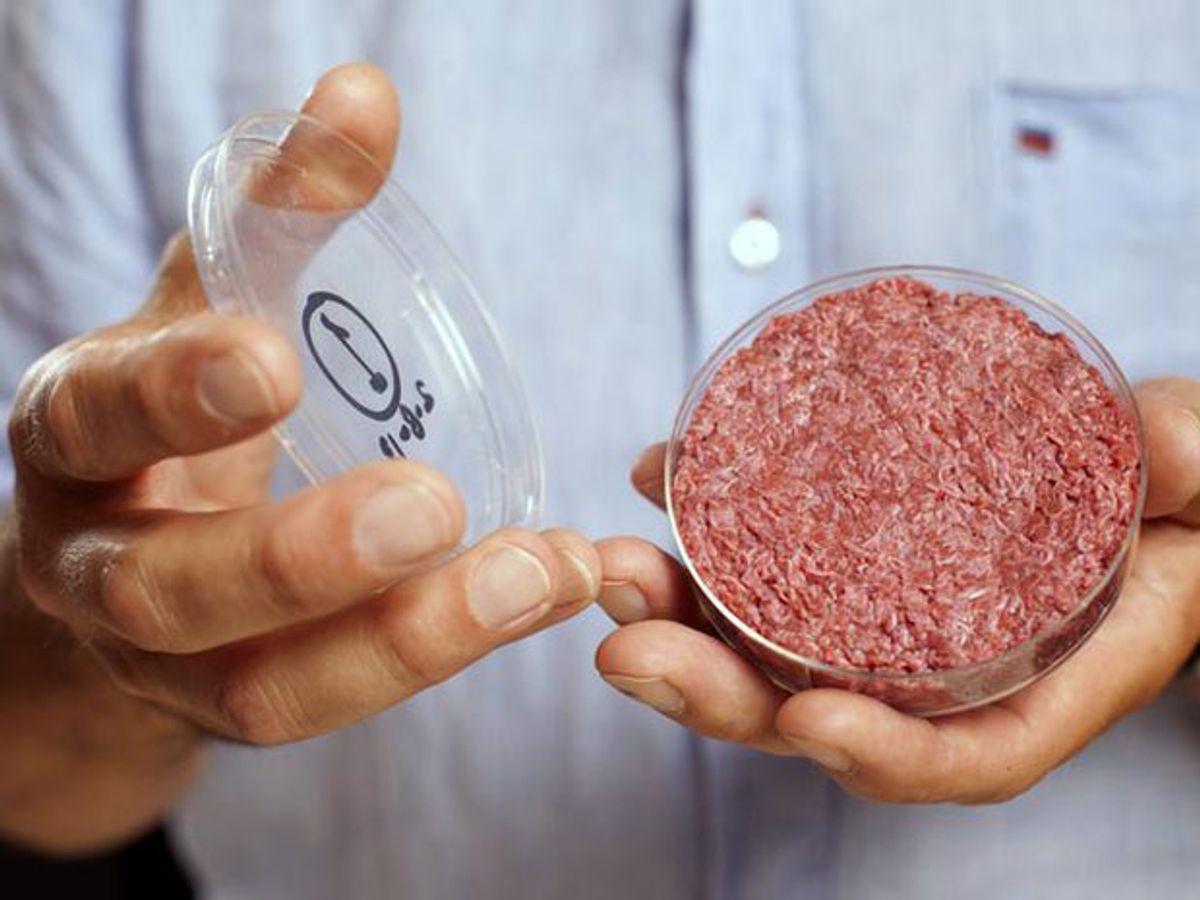At a news conference in London earlier today, researchers unveiled the world’s first synthetic burger, grown entirely from stem cells in a Dutch lab. Two volunteer food experts tasted the test tube beef, while Dr. Mark Post, the Maastricht University professor who led the team that developed the ultimate made-to-order meal, said the new technology could be a sustainable way of meeting the world’s growing appetite for meat.
“Meat demand is going to double in the next 40 years,” Post said at a science meeting in Vancouver last year, where he first revealed his team’s research efforts. “Right now we are using 70 percent of all our agricultural capacity to grow meat through livestock. You can easily calculate that we need alternatives.”
According to the Telegraph UK, Post and his team extracted cow stem cells and used them to grow 20 000 strands of muscle, each about the size of a grain of rice. They then meticulously mashed these protein strands together to construct the edible hunk of beef presented at today’s event. While it took the scientists just three months to grow the synthetic burger, that part of the project followed nearly six years of research.
Hanni Rutzler, an Austrian food researcher, and Josh Schonwald, a Chicago-based food writer and author of the book “The Taste of Tomorrow,” stepped up as the official tasters. At first bite, the pair noted that the burger’s texture felt authentic and meat-like, but the taste of fat was noticeably absent.
“I was expecting the texture to be more soft,” Rutzler described to reporters at the event. “There is quite some intense taste; it’s close to meat, but it’s not that juicy. The consistency is perfect, but I miss salt and pepper.”
“I miss the fat,” Schonwald remarked. “There’s a leanness to it, but the general bite feels like a hamburger. What was consistently different was flavor.”
Originally, the lab-grown beef was almost white in color and had very little flavor, the Telegraph UK reports. Researchers had to add beetroot juice and saffron to give it more realistic color, and breadcrumbs and egg powder to improve its taste. These enhancements notwithstanding, Post says high production costs and possible consumer resistance may likely be major barriers to widespread adoption of the synthetic meat, at least early on. But he estimated that the cultured beef burger could be ready for the mainstream market in about “10 to 20 years.”
A June IEEE Spectrumspecial report on the future of food included an article about strides being made in developing meat substitutes capable of fooling the eye and the palate. But the main challenge has always been creating a cheaper meat alternative, not better ones, and the tenor of the argument has not changed here.
Developing and producing the so-called Frankenburger rang up a US $325 000 tab; the check was picked up by a heretofore secret investor. At today’s event, this financier was revealed to be none other than billionaire Google cofounder Sergey Brin. He was allegedly moved to invest in the technology for animal welfare reasons.
Brin, who appeared by video at the tasting, said: “We’re trying to create the first cultured beef hamburger. From there, I’m optimistic that we can really scale by leaps and bounds.”
Photo: David Parry/Reuters



